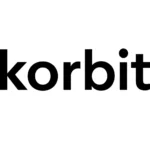South Korean biotech Alteogen expects to collect over 1 trillion won ($740 million) annually in royalties following U.S. regulators’ approval of a subcutaneous version of Merck’s blockbuster cancer therapy Keytruda.
The FDA cleared Keytruda Qlex on Friday for 38 cancer indications, incorporating Alteogen’s ALT-B4 technology that reduces administration time from 30 minutes to as little as one minute. Keytruda generated $8 billion in second-quarter sales, accounting for more than half of Merck’s total revenue.
Merck projects 30-40% of Keytruda patients will switch to the subcutaneous formulation, potentially generating 20-30 trillion won ($14.8-22.2 billion) in annual sales by 2030. These ambitious projections assume rapid physician and patient adoption of the new delivery method.
However, Alteogen faces patent litigation risks. California-based Halozyme claims the Korean company’s technology infringes its modified hyaluronidase patents and is prepared to seek an injunction to block sales if licensing talks fail. Merck has filed petitions to invalidate certain Halozyme patents, setting up a potential legal battle that could affect royalty flows.
The subcutaneous approval comes as Keytruda faces patent expiration in 2028, making the convenience advantage critical to Merck’s defense strategy against biosimilar competition. For Alteogen, success depends on market adoption rates that remain unproven.




